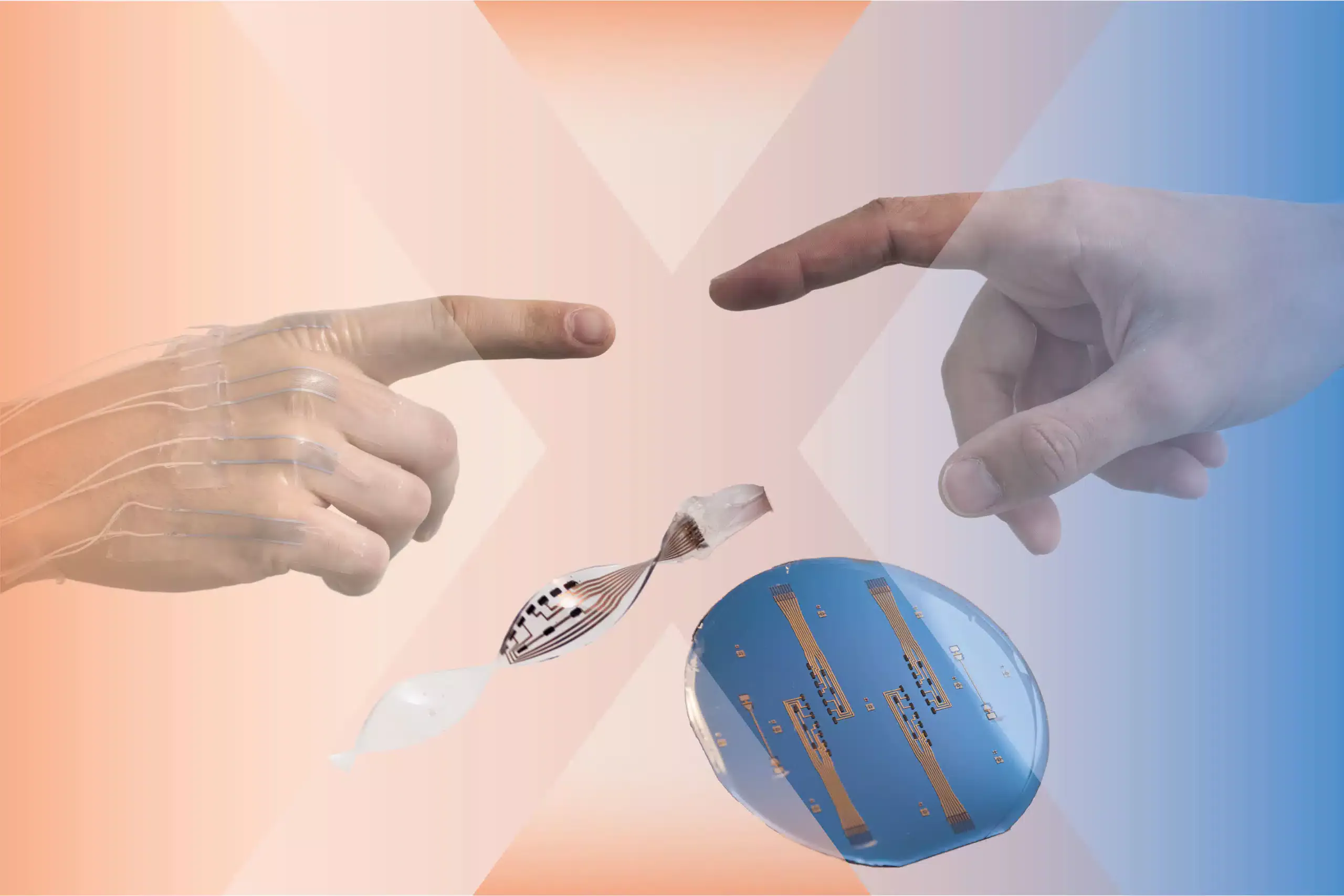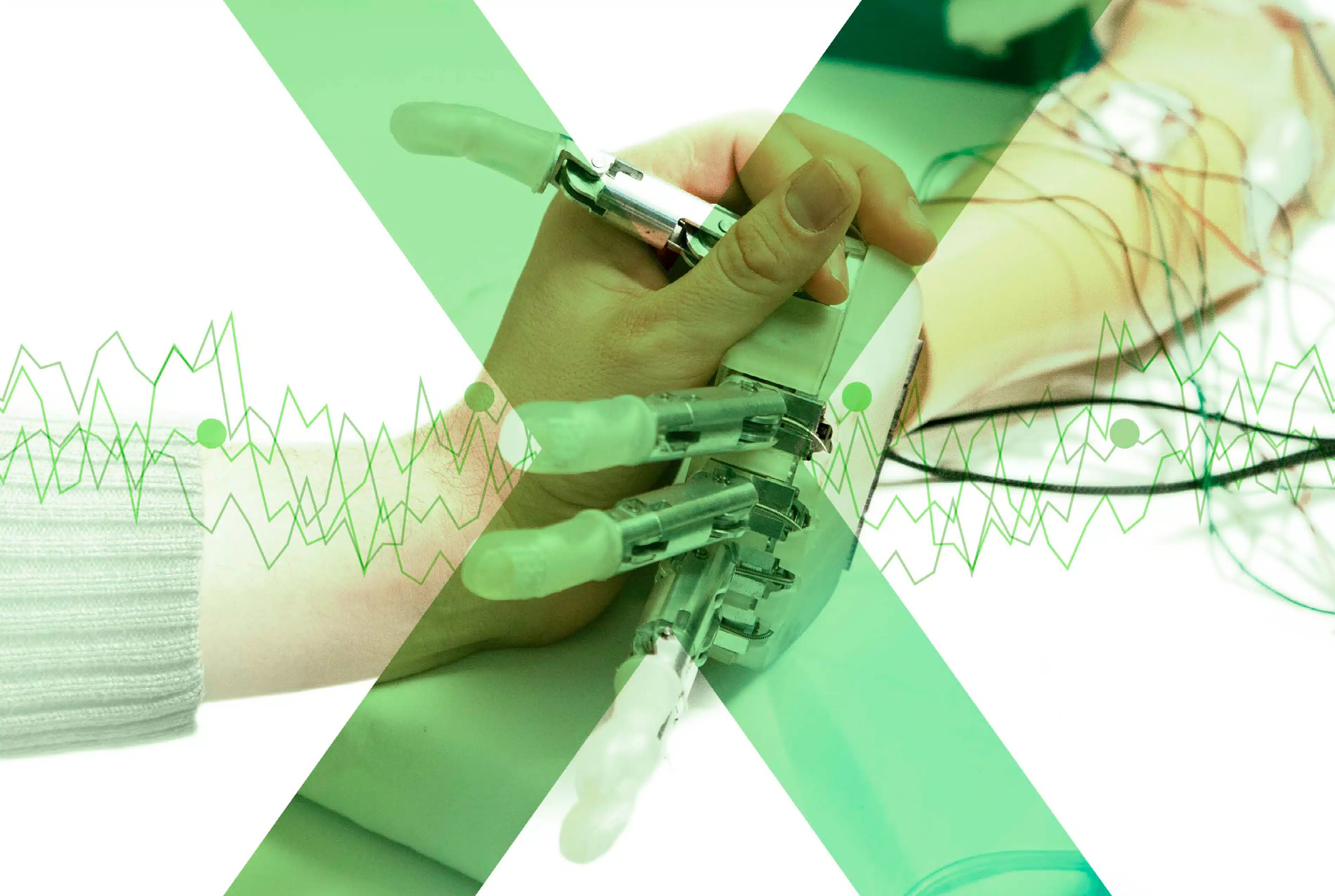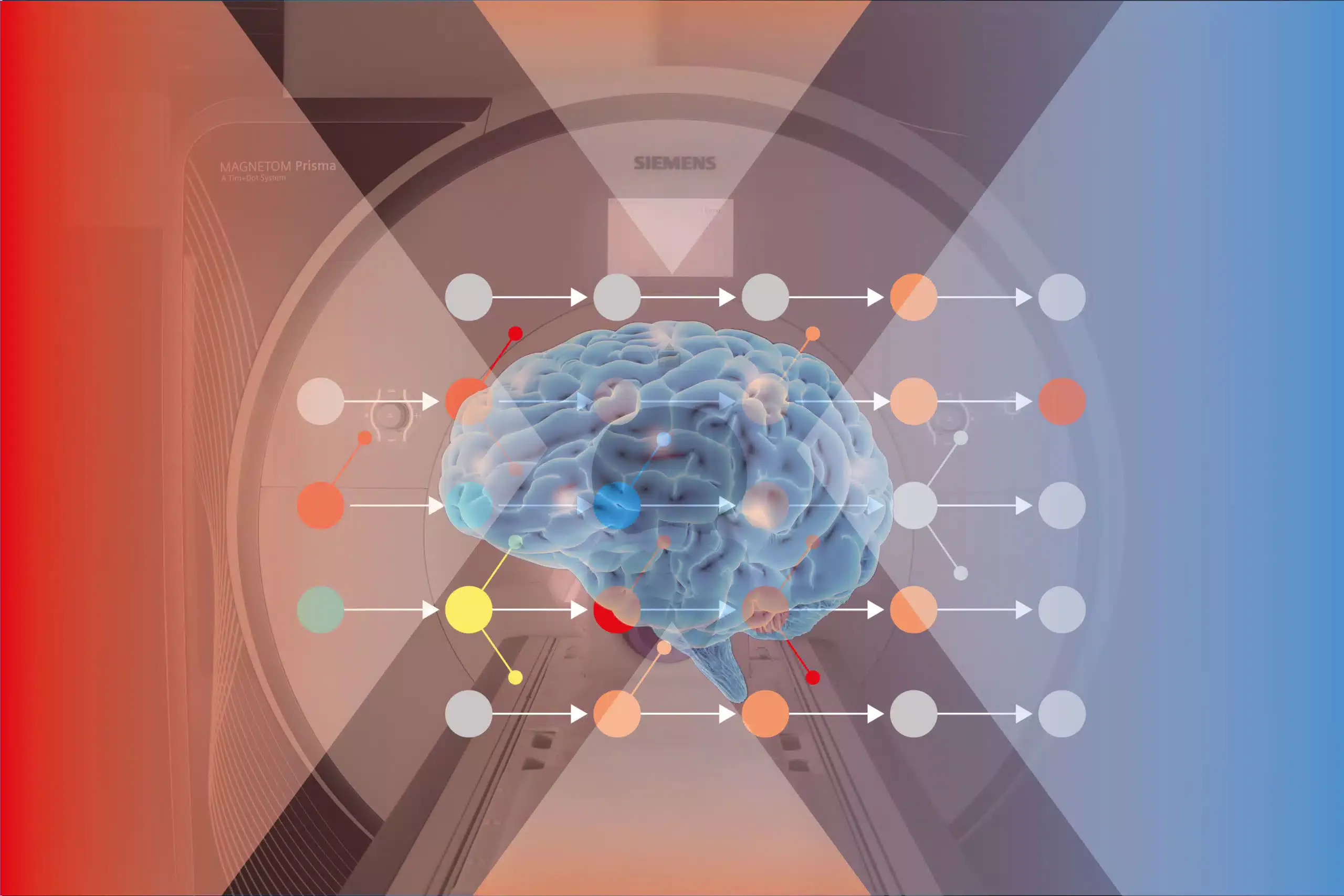Neuro X research
The Neuro X Institute is the home of a vibrant community of laboratories, active in various areas of neuro-research.
Core laboratories
DEFITECH CHAIR OF CLINICAL NEUROENGINEERING
Prof Friedhelm Hummel
LABORATORY OF SOFT BIOELECTRONIC INTERFACES, BERTARELLI CHAIR IN NEUROPROSTHETIC TECHNOLOGY
Prof Stéphanie Lacour
TRANSLATIONAL NEUROENGINEERING LABORATORY, BERTARELLI CHAIR IN TRANSLATIONAL NEURAL ENGINEERING
Prof Silvestro Micera
Laboratory of Chemical Nanotechnology
Prof Nako Nakatsuka
neuroAI Laboratory
Prof Martin Schrimpf
MEDICAL IMAGE PROCESSING LABORATORY
Prof Dimitri Van De Ville
Associate laboratories
Mathis group
Prof Alexander Mathis
Bertarelli Gene Therapy Platform
Dr Bernard Schneider

Laboratory of Cognitive Neuroscience, Bertarelli Chair in Cognitive Neuroprosthetics
Prof Olaf Blanke
The Blanke lab studies the multisensory brain mechanisms of body perception (somatosensory, vestibular, motor and visual signals) in cortical networks. For this we apply paradigms from cognitive science, neuroscience, neuroimaging, robotics, virtual reality in healthy subjects and a large range of neurological, psychiatric and orthopedic patients. Our main goal is to understand the brain mechanisms involved in multisensory own body perception in order to develop a neurobiological model of self-consciousness.
Concerning technology development, we have pioneered the use of digital technologies such as virtual and augmented reality in neuroscience and also introduced engineering techniques such as robotics and haptics to human neuroscience of multisensory perception, consciousness and cognition, by fully integrating them with behavioral and neuroscience technologies, including MRI-compatible robotics.
Finally, work in cognitive neuroprosthetics exploits these neuroscientific insights and the technological expertise (robotics, haptics, virtual reality, and augmented reality) to develop novel diagnostics and also therapeutics for patients suffering from chronic pain, paraplegia, and limb amputation as well as schizophrenia and Parkinson’s disease.
Keywords: body perception, self-consciousness, neurodegenerative diseases, virtual reality, haptics, fMRI

G-Lab
Prof Grégoire Courtine
Our mission is to conceive and deploy innovative interventions to restore motor functions after central nervous system disorders, especially spinal cord injury, and to translate our findings into clinical applications capable of improving the quality of life for people with motor impairments.
We are developing neuroprosthetic systems, robotic interfaces and advanced neurorehabilitation procedures that we combine with neuroregenerative interventions in rodent and primate models of neurological disorders. Using genetically modified mice, optogenetics, viral tools and whole brain imaging, we seek to uncover the neural mechanisms underlying the control of locomotion in intact animals, as well as the processes that reestablish motor functions after neuromotor disorders. We are also performing clinical studies to test the efficacy of our interventions in human patients.
Keywords: spinal cord injury, neurosurgery, neurotechnology, brain-computer-interface

Rehabilitation and assistive robotics
Dr Mohamed Bouri
Rehabilitation and motor learning are the main driving topics of REHAssist. This mainly concerns the following research areas:
- Development of devices to assist locomotion and for rehabilitation
- Control strategies for assistance, mobilization, and management of balance
- Closed loop functional electrostimulation (FES) and sensory substitution
- Haptics for sensory-motor rehabilitation and surgery
Keywords: rehabilitation, assistive robotics, gait

Defitech Chair of Clinical Neuroengineering
Prof Friedhelm Hummel
The mission of the Hummel Lab is to develop novel personalized, neurotechnological interventions tailored to the individual to enhance functional recovery of sensorimotor and cognitive functions in patients suffering from neurological disorders, such as stroke, TBI or neurodegenerative disorders, and bring these neuro-technologies from bench to clinical bedside. An excellent understanding of the underlying mechanisms of the disorders and recovery processes, and the development of biomarkers is an important basis to achieve this goal.
Keywords: Stroke, Traumatic Brain Injury, brain stimulation

Laboratory of Soft Bioelectronic Interfaces, Bertarelli Chair in Neuroprosthetic Technology
Prof Stéphanie Lacour
We are a multidisciplinary group at the cross roads of engineering and biology. Our research explores materials, technology and integration of soft bioelectronic interfaces or electronics skins. We design and characterise stretchable materials and devices, and implement them in ultra-compliant circuitry and soft biointerfaces. The field of applications of Soft BioElectronics Interfaces is vast, ranging from novel user touch interfaces, robotic skins to long-term active neuroprosthesis.
Keywords: soft bioelectronics, neural engineering, cortical electrodes, haptics, wearables

Translational Neuroengineering Laboratory, Bertarelli Chair in Translational Neural Engineering
Prof Silvestro Micera
The TNE Lab develops effective neurotechnologies to restore sensorimotor function in people affected by different kinds of disabilities. We seek to translate neuroscience findings into clinical practice.
Keywords: neural engineering, brain-computer interfaces, sensorimotor function, prostheses

Medical Image Processing Laboratory
Prof Dimitri Van De Ville
At MIP:Lab, we pursue the development and integration of innovative data-processing tools at various stages of the acquisition, analysis, and interpretation pipeline of neuroimaging data, in particular, using (functional) magnetic resonance imaging, electroencephalography, and optical techniques. We aim at obtaining new insights into brain function & dysfunction by approaches that are based on modeling the brain as a network and as a dynamical system.
These new signatures of brain function are promising to interpret and predict cognitive and clinical conditions. In that sense, we want to go beyond mapping the brain and contribute to the ongoing quest to ultimately find...
"... a way of looking at activity in real time, essentially at the speed of thought, so you're able to capture what's activated when and how that's connected in a way that's sufficient for behavior."
Dr. Thomas Insel, Director National Institute of Mental Health (2015)
Keywords: fMRI, connectomics, brain networks

Mathis Group
Prof Alexander Mathis
Broadly speaking, we work at the intersection of computational neuroscience and machine learning. Ultimately, we are interested in reverse engineering the algorithms of the brain, in order to figure out how the brain works and to build better artificial intelligence systems.
Keywords: NeuroAI, Machine Learning, DeepLabCut

Mathis Laboratory of adaptive Motor Control, Bertarelli Chair in Integrative Neuroscience
Prof Mackenzie Mathis
We aim to reverse engineer the neural circuits that drive adaptive motor behavior by studying artificial and natural intelligence. We design behavioral assays for mice, perform large-scale neural recordings, and build new deep learning & machine learning tools to aid in our quest of finding internal models in the brain.
Keywords: NeuroAI, DeepLabCut, motor control

Integrated Neurotechnologies Laboratory
Prof Mahsa Shoaran
Our research at INL lies at the intersection of circuit design, machine learning, and neuroscience, and our mission is to develop new diagnostic and therapeutic devices for neurological and neuropsychiatric disorders.
We use advanced circuit design techniques to build low-power and miniaturized system-on-chips (SoCs) that can record neural activity, detect brain dysfunction in real time, and respond by therapeutic intervention such as neurostimulation. We use machine learning techniques for accurate detection of neurological symptoms in closed-loop neural implants, and for motor decoding in brain-machine interface systems.
Keywords: circuit design, neurostimulation, smart implants

Bertarelli Foundation Gene Therapy Platform
Dr Bernard Schneider
Our mission is to develop and provide viral vectors for genetic manipulations, for both research in life sciences and therapeutic applications. The platform can support any approach including gene delivery, gene silencing and gene editing, either in vitro or in vivo. In particular we can provide longstanding expertise and guidance for the design of gene therapy related to the central nervous system and sensory organs.
Keywords: gene therapy, viral vectors
Principle investigators
The Neuro X Institute is the home of a vibrant community of Principle Investigators, active in various areas of neuro-research.
Learn moreNeuro X Postdoctoral Fellowship Program
The Neuro X Institute calls for application for postdoctdoctoral positions.
Learn moreResearch domains
The research at Neuro X Institute is interdisciplinary by nature. The list of disciplines that we use to develop next-generation therapies is endless.
Learn more